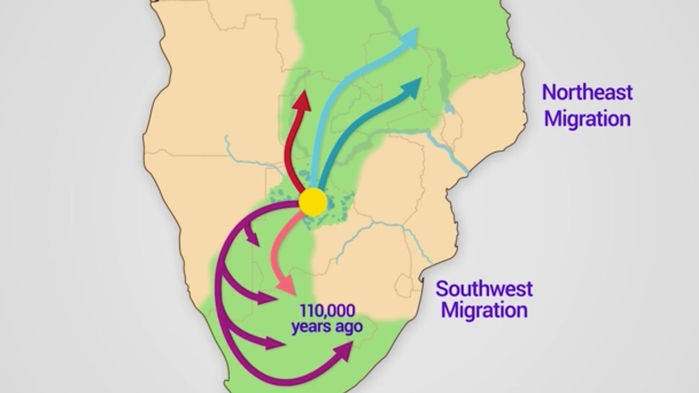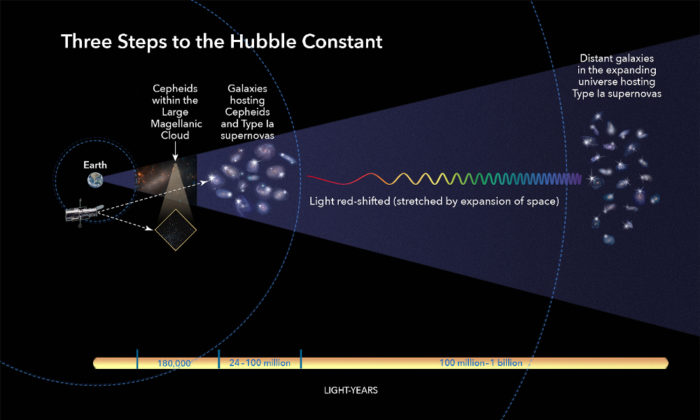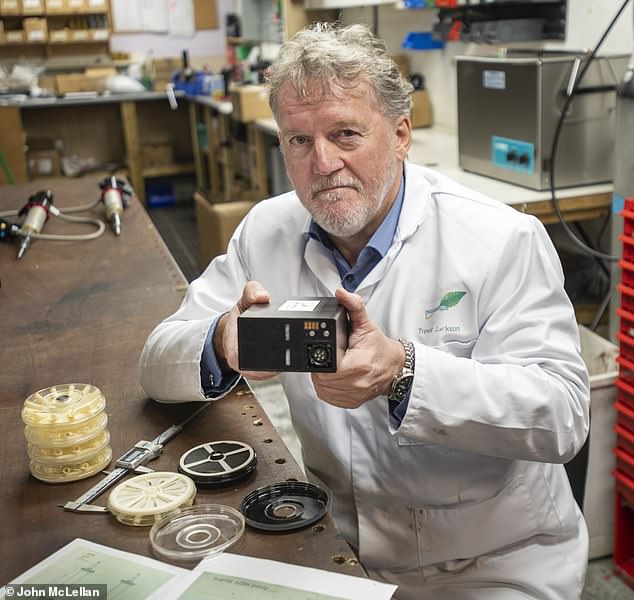Oct 31 2019
Tracing Human Origins
 When and where did fully modern humans first emerge? That is an interesting question that paleontologists have been chasing for decades. Now a new genetic study claims to have pinpointed that origin to northern Botswana 200,000 years ago. The claim is already getting some pushback from other experts, but the new data does add to our understanding of human origins.
When and where did fully modern humans first emerge? That is an interesting question that paleontologists have been chasing for decades. Now a new genetic study claims to have pinpointed that origin to northern Botswana 200,000 years ago. The claim is already getting some pushback from other experts, but the new data does add to our understanding of human origins.
The study looks at mitochrondrial DNA, a technique that has been used before. This is DNA outside the nucleus, in each mitochondria of the cell (the power factories). They are almost exclusively passed down through the maternal line, because the egg provides all the mitochondria to the embryo, while sperm generally contribute none (although one may sneak through from time to time). You can therefore use mDNA to trace maternal lines.
When this type of analysis was first done researchers found that all humans have a common female ancestor going back to about 200,000 years in Africa. This result was widely misinterpreted in the press, not helped by the fact that this alleged ancestor was deemed the “mitochondrial Eve.” If you go back far enough, everyone is related to everyone. Therefore we all have many common ancestors. What the analysis shows really is a couple of things. First, that only one mitochondrial line from this time survived to the modern day. That doesn’t mean we only have one common female ancestor. But every time a woman has only sons, her mitochondrial line dies out. This finding does suggest, however, that the human population when through a relative bottleneck at this time. Our ancestors were not spread around Africa or the world, because then each region would have its own mitochondrial lineage.

 Hygiea is the fourth largest asteroid in the asteroid belt, after Ceres, Vesta and Pallas. Recent observations of Hygiea are now challenging the distinction between an asteroid and a dwarf planet.
Hygiea is the fourth largest asteroid in the asteroid belt, after Ceres, Vesta and Pallas. Recent observations of Hygiea are now challenging the distinction between an asteroid and a dwarf planet. Science Writer Ed Regis has recently published a book,
Science Writer Ed Regis has recently published a book,  76.8 kilometers per second per megaparsec.
76.8 kilometers per second per megaparsec.
 Move over CRISPR – enter Prime Editing.
Move over CRISPR – enter Prime Editing.
 I still remember the PSA of the crying American Indian, sad because of all the trash that the modern world was spreading in the previously pristine environment. It was powerful, and it had a real impact on me. The ad was sponsored by Keep America Beautiful, and I (like most everyone else) assumed this was an environmental group interested in keeping America beautiful.
I still remember the PSA of the crying American Indian, sad because of all the trash that the modern world was spreading in the previously pristine environment. It was powerful, and it had a real impact on me. The ad was sponsored by Keep America Beautiful, and I (like most everyone else) assumed this was an environmental group interested in keeping America beautiful. Recently celebrity supporters of Extinction Rebellion, a protest group calling for aggressive action on climate change, signed a letter admitting to being hypocrites. They state:
Recently celebrity supporters of Extinction Rebellion, a protest group calling for aggressive action on climate change, signed a letter admitting to being hypocrites. They state: The market is innovating some burger alternatives in order to reduce demand for beef. There are potentially three reasons to reduce beef consumption – health, environmental, and ethical. How successful are these replacements?
The market is innovating some burger alternatives in order to reduce demand for beef. There are potentially three reasons to reduce beef consumption – health, environmental, and ethical. How successful are these replacements?




